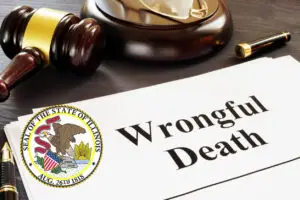According to statistics compiled by the Centers for Disease Control and Prevention (CDC), nearly 4 million Americans suffer a concussion while participating in sports or recreational activities each year. But concussions don’t only occur in sports—they are also commonly seen in car accidents and other circumstances involving a blow to the head or body.
Although there is no 100%-surefire way to prevent a concussion, there are steps that we can all take to help protect ourselves and our loved ones. And, by learning to recognize the symptoms of a concussion, we can ensure that we obtain the treatment needed to get better, and don’t engage in activities that can make us worse.
Concussions: Causes and Symptoms
A concussion is a traumatic brain injury (TBI) that is common in sports and automobile accidents. A concussion occurs when some force to the head or body causes the brain to move around inside the skull. This movement can result in damage to brain cells, changes in the brain’s chemistry, and even bleeding in the brain.
Concussions are sometimes referred to as “mild” TBIs, but they are serious injuries. Although a concussion will often heal on its own as the result of rest, subsequent brain injuries will compound the negative effects of the initial blow. Multiple concussions can result in death.
Accordingly, it is critical that parents, coaches, and caretakers understand the symptoms of a concussion so that it can be treated appropriately. The CDC breaks concussion symptoms into four categories:
- Mental Symptoms
- “Foggy” thinking
- Mental slowness
- Inability to concentrate
- Inability to remember new information
- Physical Symptoms
- Headache
- Blurred vision
- Nausea or dizziness
- Sensitivity to noise or light
- Lack of coordination
- Tiredness
- Emotional Symptoms
- Irritable
- Sad
- More emotional than usual
- Nervous or anxious
- Sleeping Symptoms
- Changes in how long a person sleeps
- Difficulty falling asleep
The CDC also lists some symptoms that warrant an immediate visit to the emergency room. These include:
- A headache that gets worse over time
- Slurred speech
- Inability to wake up
- One pupil larger than the other
- Seizures
- Loss of consciousness
Protecting Yourself Against a Concussion
Nothing you can do guarantees that you will never suffer a concussion. Whatever precautions you take, you will still be susceptible to a concussion if your head or body experience a sudden jolt or blow, such as often occurs in contact sports or car accidents.
Still, there are some steps you can take to help protect yourself against a concussion. They include:
- Protect children against sudden forces on their skulls by using age-appropriate car seats and baby gates at the top of stairs.
- While playing sports or engaged in certain other athletic activities (such as riding a bicycle), wear an appropriate helmet.
- If you have a choice for a playground for your children, choose one with a soft surface, such as sand, rather than a hard one, like dirt.
In other circumstances, just use common sense. If you’re exposing yourself or your child to the risk of some physical force to the head, take appropriate precautions.
Understand Illinois Law
Because concussions are so common in sports activities, and so dangerous for youth, Illinois has enacted a statute to help protect young athletes in the event of a concussion. The law imposes certain Return to Play and Return to Learn requirements on student athletes engaged in interscholastic sports and encourages non-school youth sports organizations to educate their players and parents about the risks of concussions.
Conclusion
Concussions are a common injury, but that doesn’t mean they are not serious. We can all take steps to help protect ourselves and our loved ones against concussions while playing sports or engaging in everyday activities like driving. And, we must all be mindful of the signs of a concussion so that we can help those we love get the treatment they need following an injury.
If you’ve been injured in an automobile accident in Illinois, contact the recently picked “Top 40 Under 40” personal injury lawyers of Costa Ivone today for a free consultation and help obtaining the compensation the law entitles you to.
Costa Ivone, LLC
311 N Aberdeen St – Suite 100B
Chicago, IL 60607
(708) 400-0000





2 Responses
Worth reading especially the section were securing ourselves against concussion is being told. Keep it up!
Concussion Safety Laws in Place in Every State, Very nice Article Keep it up for your good Work.
Thanks for sharing information.